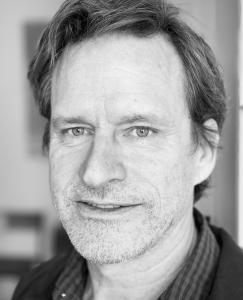Max and Allen Mohammadi’s plant-waste cups look and work just like plastic, but they’re completely biodegradable
Allen and Max Mohammadi are brothers, engineers and entrepreneurs based in Sweden who aren’t afraid of taking on global challenges.
They have previously developed an award-winning Artificial Intelligence-driven platform to help doctors detect heart disease before it strikes. Their latest venture, PlasticFri, takes on plastic pollution in the environment. The brothers have invented a new kind of biomaterial, made from renewable resources such as plant waste, that looks and works like conventional plastic. But it’s completely petroleum free and can be manufactured using existing machinery to make affordable and non-toxic disposable products such as cups, bags and wrapping films.
“The history of the idea goes back to our family,” says Allen, speaking from his home in Stockholm. “Anytime we would go on an outing – to the beach or in nature – we would spend time picking up rubbish, so that the environment around us was clean.”
As adults, Allen and Max continued the tradition their parents had taught them. “Wherever we went, we noticed most of the rubbish we picked up was plastic waste. And of course, it never stops accumulating. Max started looking into developing an alternative to plastic that could have a big impact.”
The scale of the problem of plastic pollution is staggering. As Allen and Max note, every piece of plastic that has been produced still exists in some form to this day – buried in landfills, or floating in giant gyres of waste in the oceans. The scope of the problem, and the fact that it keeps mounting every year, was one of the motivating factors in their research, the brothers say.
Meeting EU standards
Allen joined Max’s research, and in 2018, when they had created a stable substance using bio-waste and non-edible plants, they started working on developing a manufacturing process and how to industrialise PlasticFri.
They went into commercial production this year, and the substance, which has a patent pending, has already been certified as meeting European standard EN 13432. This requires compostable plastics to disintegrate after 12 weeks and completely biodegrade after six months.
PlasticFri won second prize in the 2020 Social Innovation Tournament run by the EIB Institute, winning €20 000 to help further its goals. It is one of many awards and commendations the company has received in the past couple of years, including being recognised by the Solar Impulse Foundation in July as one of 1 000 efficient solutions to restore and protect the environment.
“Every year, 60 billion paper cups are dumped in Europe – and that’s just Europe,” Max says. “In the world, it’s 600 billion. People use a cup for 30 or 40 minutes, and they think it’s OK because it’s paper. But because of the plastic liners, it can take that cup 20 or 30 years to decompose. We think that’s extremely crazy, and we need to change that mentality.”
The larger goal in mind
Max says that’s why they are focusing on paper cups. It’s an everyday item with which everyone is familiar and that illustrates the scale of the problem – one in which PlasticFri has already started to have an impact. The company started selling its cups this year, and Max says it already has the capacity to produce 5 million cups of each size per month.
Allen explained that PlasticFri is affordable, that its production reduces CO2 emissions by up to 86% compared with conventional plastic, and that a cup made by PlasticFri can actually be recycled, preserving the value of the trees that were cut down to make the paper and contributing to a circular economy. “Our vision is to end plastic pollution by providing better alternatives,” Max says.
Both brothers emphasise that, to them, making cups and bags that biodegrade is only part of the solution. They want to use PlasticFri as a platform to raise awareness and change the way people think.
“At its heart, PlasticFri is leading a movement to a sustainable and cleaner future,” says Allen. “With the choices we make every day, everyone can make an impact.”
